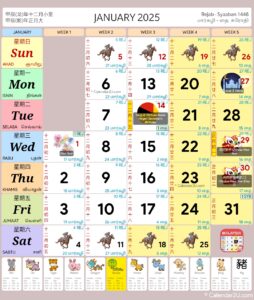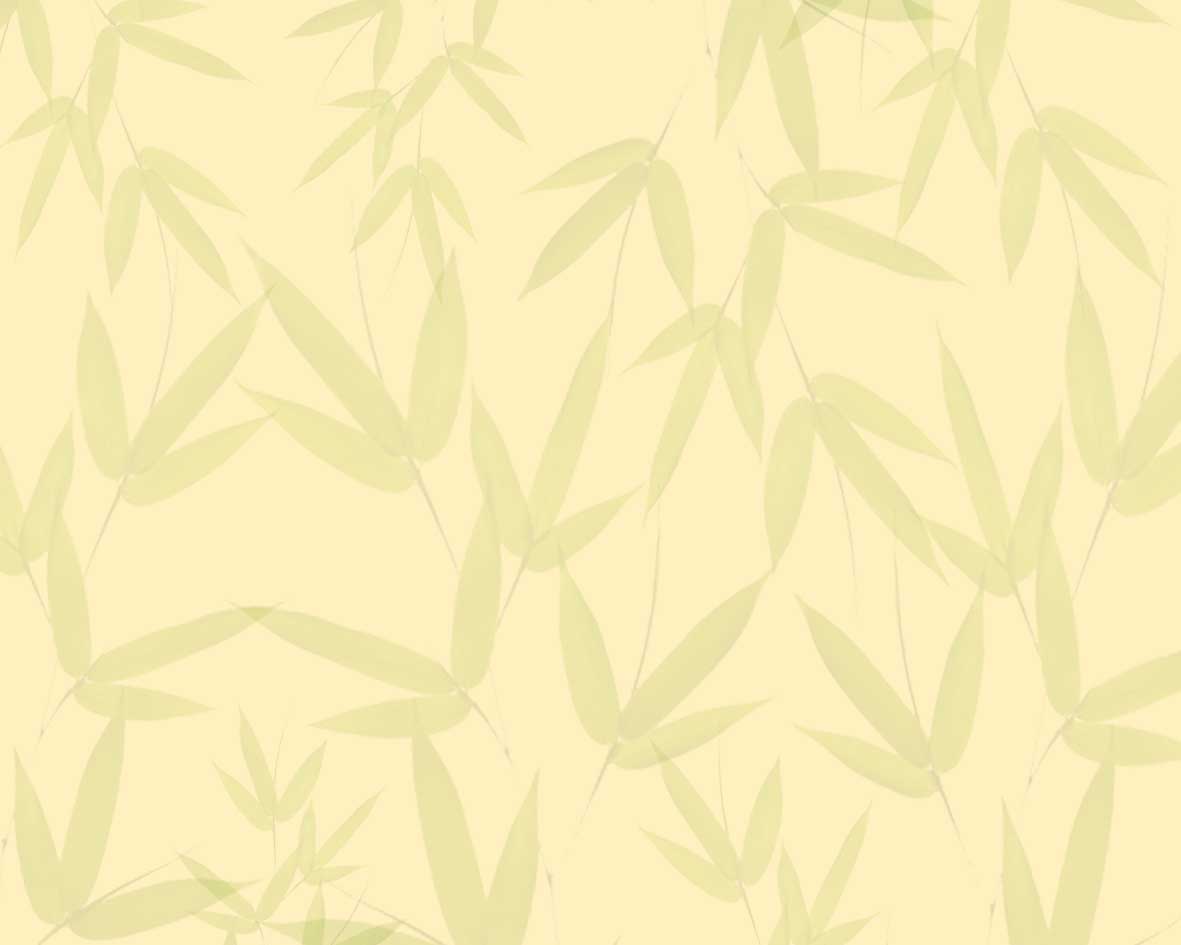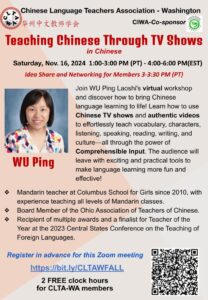By MO Xiaoling 莫晓灵
I am thrilled to share that on December 4, 2024, UNESCO officially added the Chinese Spring Festival to its Intangible Cultural Heritage list. This recognition highlights the global significance of this cherished tradition.
As the organizer of our school’s annual festival celebrating the first day of the Chinese lunisolar calendar, I am often asked: “Should we call it Lunar New Year or Chinese New Year—or something else?” Since this question frequently arises, I even started addressing it in my FAQ document. This post expands on my typical response.
Why “Lunar New Year” Doesn’t Feel Quite Right
The term “Lunar New Year” has always felt imprecise to me because, in my perspective, it is simply the Year “年nián”, requiring no additional modifiers. In my childhood, as the Year (年 nián) approached, we would excitedly cheer, “过年啦 guò nián la” (Cross the Year). I started researching the history of Chinese New Year, especially in the United States. Thanks to the work by the team of “Historical Record of Chinese Americans”, finding early references has become much easier.
The first recorded “Chinese New Year” celebration in the U.S. was in Marysville, California, in 1859, and contemporary newspapers explicitly called it “Chinese New Year.”
Similarly, the first documentation of “Chinese New Year” on the East Coast appeared in Belleville, New Jersey, in 1876, in Frank Leslie’s Weekly Illustrated Newspaper.
Since learning about these historic celebrations last year, I have been sharing their stories with my students in class to deepen their understanding of the cultural significance and history of Chinese New Year in the United States.
The term “Lunar New Year” does not have a clearly documented origin but is widely believed to have been coined by English speakers, likely in Western contexts, as a general term to encompass New Year celebrations based on lunar or lunisolar calendars. It may have been introduced as an inclusive label to group holidays such as Chinese New Year, Korean Seollal, and Vietnamese Tết under a single term. For example, in March 2024, Governor Jay Inslee signed House Bill 2209, officially recognizing Lunar New Year as a holiday in Washington state.
Is the Chinese Calendar Lunar?
Contrary to popular belief, the Chinese calendar is not purely lunar—it is lunisolar, blending lunar and solar elements. It features 24 solar terms that guide agricultural and seasonal activities. These solar terms, originating in China, are also used in Korea, Vietnam, and Japan.
There are at least 12 different lunar calendars in use worldwide. For example, the Jewish calendar, which governs holidays like Rosh Hashanah (Jewish New Year), is also lunar. Technically, Rosh Hashanah could also be referred to as a “Lunar New Year.” This makes the term “Lunar New Year” overly broad and not specific enough to represent the cultural significance of the Chinese New Year.
How Other Cultures Celebrate the Lunisolar New Year
China, Korea, and Vietnam all celebrate the New Year based on the Chinese lunisolar calendar, while Japan transitioned to celebrating the New Year on January 1 with the adoption of the Gregorian calendar in 1873. China officially adopted the Gregorian calendar in 1912, but it preserved the traditional celebration of the first day of the lunisolar New Year, rebranding it as the “Spring Festival.” Each culture has its own unique name and traditions for this holiday. For example:
- China: 元旦(yuán dàn; First Day) and other sayings before 1912; 春节 (Chūn Jié; Spring Festival) after 1912
- Korea: 설날 (Seollal; New Year’s Day)
- Vietnam: Tết Nguyên Đán (Festival of the First Day)
- Japan: 正月 (Shōgatsu; New Year’s Day)
- Malaysia: 农历新年(nóng lì xīn nián; Chinese New Year)

These names emphasize the distinct cultural identity of each celebration. When translating them into English, it is respectful to use their specific cultural names, such as Chinese New Year, Korean New Year, Vietnamese New Year, or Japanese New Year. As shown in the Malaysian calendar, the term “Chinese” in Chinese New Year refers to the ethnic Chinese community, not exclusively to the nation of China. Alternatively, using the original terms, such as Chunjie, Seollal, Tết and Shōgatsu, preserves the authenticity of these celebrations. Unlike the Gregorian calendar’s New Year, these New Year holidays are celebrated for multiple days.
Final Thoughts
For many, particularly in the Chinese, Korean, Vietnamese, and Japanese communities, referring to their respective holidays by their specific names (e.g., Spring Festival, Seollal, Tết, or Shōgatsu) is preferred, as it preserves cultural authenticity and avoids generalization. Each of these celebrations is deeply rooted in the history and culture of its people. For example, the Spring Festival, or Chinese New Year, carries profound significance in Chinese culture, just as Seollal, Tết, and Shōgatsu hold unique meanings and traditions in Korea, Vietnam, and Japan.
By understanding the origins and nuances of these holidays, we can better appreciate their rich traditions and global significance. Whether we call it Chinese New Year, Spring Festival, or use culturally specific terms like Chunjie, Seollal, Tết, or Shōgatsu, let’s celebrate the shared joy they bring while honoring the diversity of cultural expressions.
We encourage teachers to educate students about these traditions in a culturally sensitive manner, fostering awareness and appreciation of the cultural richness and variety represented by these holidays.
Sources:
Daily National Democrat (Maryville, California) page 2, Feb 2,1859
Frank Leslie’s Illustrated Newspaper 1876-02-12: Vol 41 Iss 1063
https://usdandelion.com/archives/6788
http://www.wenming.cn/wmdjr_299/20240311/b483c83c66df46459d4fb59b036ca042/c.html
https://www.chinahighlights.com/travelguide/festivals/chinese-new-year-vs-lunar-new-year.htm





